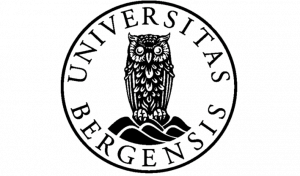Postdoctoral Research Fellow position at the Faculty of Psychology University of Bergen

UiB - Knowledge that shapes society
Through robust and close interaction with the world around us – globally, nationally and locally – we shall be instrumental in building a society based on knowledge, skills and attitudes.
Do you want to take part in shaping the future?
Postdoctoral Research Fellow position
At the Faculty of Psychology, there is a vacancy for a postdoctoral research fellow position within the fields of theoretical and applied aspects of artificial intelligence in clinical, applied or cognitive psychology, health promotion, neuroscience, or educational sciences.The position is for a fixed term of three years and is financed by the University of Bergen.
The position is open to an incoming candidate, see LEAD AI mobility rules.
Research theme:
The Faculty of Psychology has a broad thematic profile based on various disciplines and several study programmes. Some of the faculty’s key research areas are basic and applied research in psychology, cognitive neuroscience, health promotion, child welfare services, speech therapy, pedagogy and educational science, as well as global and development-related research.
The faculty aims to facilitate cross-disciplinary research and stimulate interaction with other AI researchers at the faculty and at the University of Bergen.
Possible research topics are for example, in alphabetical order:
- AI in applied and clinical psychology
- AI in communication (e.g. as helping tool)
- AI in the context of education and pedagogical challenges and opportunities, including AI in higher education, teacher education and schools
- AI in neuroscience (e.g., analyses of complex and/or big data of genetics, neuroimaging, EEG, ECG, multi-omics, and cognition)
- Use, user experiences, and attitudes towards AI
The vacant postdoctoral research fellow position will be anchored at one of the faculty’s departments or centres, with the expectation of working interdisciplinary. The affiliation will be to the department or centre most relevant to the postdoctor’s research topic.
About the LEAD AI fellowship programme
LEAD AI is the University of Bergen's career and mobility fellowship program for training 19 postdoctoral fellows in artificial intelligence.
The program has received funding from the European Union’s Horizon Europe research and innovation programme under the Marie Skłodowska-Curie Grant Agreement No. 101126560.
The LEAD AI programme offers high-quality inter- and transdisciplinary research and training opportunities in the area of artificial intelligence supported by a dedicated supervision and mentoring, encouraging inter-sectoral exposure, in particular
- academic freedom
- benefits from knowledge and skills transfer between disciplines, organisations and sectors
- structured, skill-based training
- high-quality working conditions
- personal career support
- equal opportunities
For more information see the LEAD AI webpage or send an email to leadai@uib.no
Qualifications and personal qualities:
- Applicants must hold a Norwegian PhD or an equivalent degree within psychology, neuroscience, educational sciences, or other AI-related fields, such as (neuro-)informatics, mathematics, or natural sciences, or must have submitted his/her doctoral thesis for assessment prior to the application deadline. It is a condition of employment that the PhD has been awarded.
- Applicants should have a genuine interest in AI, and the research proposal must be related to artificial intelligence.
- Applicants cannot previously have been employed as a postdoctoral fellow at UiB and they cannot be employed by any other institution for the time of the fellowship.
- Experience with AI-related research and/or innovation is an advantage.
- Experience from one of the faculty’s research areas is a requirement.
- The LEAD AI mobility rules must be followed.
- Applicants must be able to work independently and in a structured manner and have the ability to cooperate with others.
- Applicants must have excellent skills in oral and written English (self-assessed in the CV and demonstrated in the application).
- The application and relevant documents must be in English.
Personal and relational qualities will be emphasized. Research experience, ambitions and potential will also be considered during candidate evaluation.
Special requirements for the position
The University of Bergen is subjected to the regulation for export control system. The regulation will be applied in the processing of the applications.
About the position of postdoctoral research fellow:
The postdoctoral position is a fixed-term position with the primary objective of qualifying the appointee for work in top academic positions. The position may be extended by up to one year (maximum 4 years in total) if the appointee is granted externally financed research stays abroad. Individuals may not be hired for more than one fixed-term period as a postdoctoral research fellow at the same institution.
For all LEAD AI fellows, a Personal Career Development Plan (PCDP) will be developed jointly by the fellow, supervisor, and co-supervisor by the end of Month 3 of the fellowship, including a plan for the individual research budget, and information on additional funding where applicable.
It is a requirement that the project is completed in the course of the period of employment.
What we offer:
- An engaged and professionally stimulating working environment.
- position as postdoctoral fellow (code 1352 in the basic collective agreement) and a gross annual salary of NOK 615 700 (equivalent to pay grade 63) upon appointment. Further increases in salary are made according to length of service in the position. A higher salary may be considered for a particularly well-qualified applicant.
- Welfare benefits* and social benefits including pension-saving in the Norwegian Public Service Pension Fund, occupational injury insurance, full salary during sick leave for 52 weeks, and paid parental leave**.
- Extension of the position term (work contract) due to sick leave and parental leave.
- Norwegian language courses free of charge.
- High standards for working hours, holidays, place of work, health, and safety.
- Access to specific training activities exclusively provided within the framework of the LEAD AI programme.
*) Subject to membership in the Norwegian National Insurance Scheme.
**) Right to paid parental leave requires 6 months paid work before first day of leave. See full requirements.
How to apply:
Before starting the online application process, please familiarise yourself carefully with our application requirements in the Guide for Applicants and Application templates. It is essential that all required attachments (see next section) are uploaded via our electronic recruiting system JobbNorge. Before uploading any documents in the portal (to minimise repetition of information):
- In the ‘JobbNorge-application field’: Only write your name.
- In the ‘JobbNorge-CV form’: Only fill in your 1) personal details, 2) information about your PhD-degree (in the field ‘Academic qualifications’) and 3) recent relevant work experience.
- You do not need to fill in any other sections in the JobbNorge form, as all the information we need will be provided by you when attaching the mandatory elements listed in the next section.
Your application must include:
- A research proposal outlining your contribution towards a thematic area described above.
- A brief account of your motivation for applying for the position.
- CV with list of any works of scientific nature (publication list)
- Mobility declaration
- Ethics and security issues: self-assessment form
- An initial self-assessment of opportunities for mandatory and recommended open science practices.
- Names and contact information for two references. One of these should be the main PhD supervisor.
- Letters of recommendation from the graduating university or previous employers are encouraged but not mandatory.
- Transcripts and diplomas. If you have not yet completed your PhD degree, please submit a statement from your institution confirming that the thesis has been submitted.
- Relevant certificates/references
The application and appendices with certified translations into English must be uploaded at JobbNorge.
Evaluation
We anticipate the whole evaluation procedure to take approximately 4 months from application deadline. Eligible applicants will be evaluated by three internationally renowned experts and assessed against criteria addressing excellence, impact, implementation, quality of the researcher, training and knowledge transfer. Details are stated in the Guide for applicants.
General information:
Detailed information about the position can be obtained by contacting:
- Deputy Dean for Research, Prof. Karsten Specht, Karsten.specht@uib.no, tel +47 55 58 62 79
For HR related questions contact:
- Adviser HR Kari Lid Skodje, kari.skodje@uib.no, tel +47 55 58 30 82
The state labour force shall reflect the diversity of Norwegian society to the greatest extent possible. People with immigrant backgrounds and people with disabilities are encouraged to apply for the position.
We encourage women to apply. If multiple applicants have approximately equivalent qualifications, the rules pertaining to moderate gender quotas shall apply.
The University of Bergen applies the principle of public access to information when recruiting staff for academic positions.
Information about applicants may be made public even if the applicant has asked not to be named on the list of persons who have applied. The applicant must be notified if the request to be omitted is not met.
Further information about our employment process can be found here.
About The University of Bergen (UiB)
The University of Bergen is a renowned educational and research institution, organised into seven faculties and approximately 54 institutes and academic centres. Campus is located in the centre of Bergen with university areas at Nygårdshøyden, Haukeland, Marineholmen, Møllendalsveien and Årstad.
